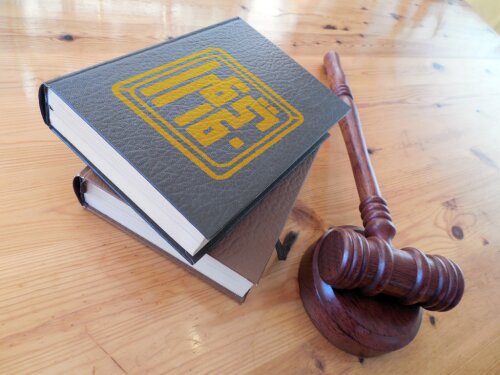Best Tax Lawyers in Qatar
Share your needs with us, get contacted by law firms.
Free. Takes 2 min.
Or refine your search by selecting a city:
List of the best lawyers in Qatar
About Tax Law in Qatar
Qatar's tax system is primarily centered around corporate taxation, with no personal income taxes levied on individuals. This makes it an attractive destination for expatriates and businesses alike. The main governing body for tax administration is the General Tax Authority (GTA), which oversees the implementation and compliance of the tax laws in the country. Generally, corporations are subject to a 10% corporate income tax on locally sourced profits, while foreign companies without a presence in Qatar face a withholding tax. The tax environment in Qatar is designed to encourage foreign investment and economic growth through a streamlined tax structure.
Why You May Need a Lawyer
Engaging a tax lawyer in Qatar can be crucial in several scenarios. Businesses often require legal assistance for navigating the complexities of the Qatari tax system, ensuring compliance with tax obligations, and minimizing tax liabilities through effective planning. A lawyer may also be needed to address disputes with the General Tax Authority or in situations requiring an appeal against tax assessments. Furthermore, legal guidance is beneficial for expatriates and employers dealing with payroll-related queries and for multinational entities planning market entry strategies while fulfilling local tax regulations.
Local Laws Overview
Key aspects of Qatar's tax laws include the Corporate Income Tax Law, which applies to income derived from Qatari sources. The withholding tax regime imposes taxes on payments made to non-residents for services performed in Qatar. In addition, the law emphasizes transfer pricing practices, with the requirement for entities engaged in controlled transactions to adhere to arm's length principles. Moreover, Qatar operates under various double taxation treaties with other nations, designed to mitigate risks of double taxation and promote cross-border trade. The country’s tax laws are continually evolving, thus making regular updates and professional advice crucial for compliance.
Frequently Asked Questions
What taxes do individuals in Qatar have to pay?
Individuals in Qatar do not pay personal income tax. However, they might be subject to rental income tax or other fees related to certain transactions.
What is the corporate tax rate in Qatar?
The standard corporate income tax rate in Qatar is 10% on locally sourced profits.
Are there any taxes on dividends in Qatar?
No, dividends distributed by companies in Qatar are generally not subject to tax.
How do double taxation treaties benefit businesses in Qatar?
Double taxation treaties help prevent the incidence of double taxation on the same income in multiple jurisdictions, promoting smooth international business operations.
What is a withholding tax in Qatar?
Withholding tax in Qatar is levied on payments made to non-residents for services performed outside Qatar, typically at a rate ranging from 5% to 7% depending on the nature of the service.
What tax obligations do foreign companies have in Qatar?
Foreign companies generating income from Qatari sources are subject to corporate income tax and/or withholding tax on applicable transactions.
How does Value Added Tax (VAT) work in Qatar?
As of now, Qatar has not implemented Value Added Tax (VAT), but plans for its introduction have been discussed in alignment with GCC VAT framework agreements.
What is transfer pricing, and how is it regulated in Qatar?
Transfer pricing refers to the pricing of goods, services, and intangibles between related entities. In Qatar, such transactions must comply with arm’s length principles to ensure fair tax practices.
How can businesses optimize their tax liabilities in Qatar?
Businesses can optimize tax liabilities through strategic tax planning, understanding local regulations, leveraging available treaties, and obtaining expert legal advice.
What is the role of the General Tax Authority?
The General Tax Authority is responsible for tax administration, implementing tax laws, collecting taxes, and ensuring compliance within Qatar.
Additional Resources
For more information or assistance regarding tax in Qatar, the following resources may be useful:
- General Tax Authority (GTA)
- Qatar Financial Centre (QFC)
- Ministry of Finance
- Qatar Chamber of Commerce and Industry
- Online tax advisory firms operating in Qatar
Next Steps
If you require legal assistance in tax matters, consider reaching out to a specialized tax lawyer or consultancy firm experienced in Qatari tax law. It’s important to gather all relevant documents related to your tax inquiries or issues and schedule a consultation to understand potential steps and their implications. Engaging with professionals who regularly monitor developments in Qatari tax law ensures adherence to legal requirements and optimizes your financial strategy.
Lawzana helps you find the best lawyers and law firms in Qatar through a curated and pre-screened list of qualified legal professionals. Our platform offers rankings and detailed profiles of attorneys and law firms, allowing you to compare based on practice areas, including Tax, experience, and client feedback.
Each profile includes a description of the firm's areas of practice, client reviews, team members and partners, year of establishment, spoken languages, office locations, contact information, social media presence, and any published articles or resources. Most firms on our platform speak English and are experienced in both local and international legal matters.
Get a quote from top-rated law firms in Qatar — quickly, securely, and without unnecessary hassle.
Disclaimer:
The information provided on this page is for general informational purposes only and does not constitute legal advice. While we strive to ensure the accuracy and relevance of the content, legal information may change over time, and interpretations of the law can vary. You should always consult with a qualified legal professional for advice specific to your situation.
We disclaim all liability for actions taken or not taken based on the content of this page. If you believe any information is incorrect or outdated, please contact us, and we will review and update it where appropriate.
Browse tax law firms by city in Qatar
Refine your search by selecting a city.
















